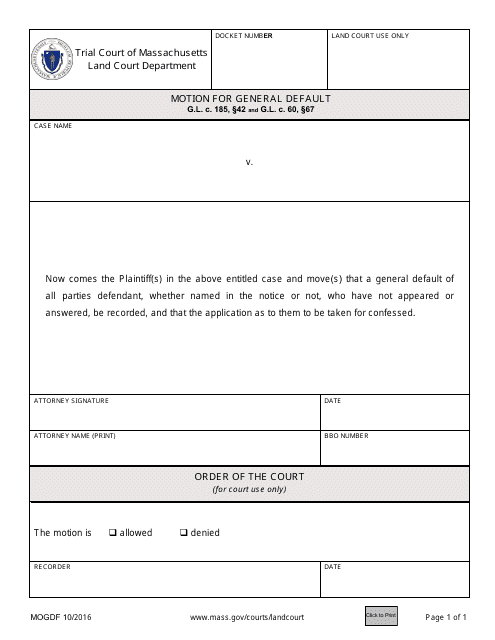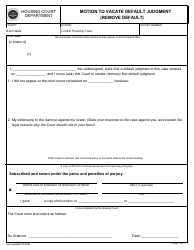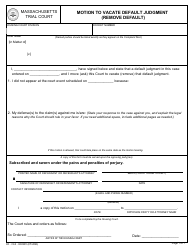Motion for General Default - Massachusetts
Motion for General Default is a legal document that was released by the Massachusetts Land Court Department - a government authority operating within Massachusetts.
FAQ
Q: What is a Motion for General Default?
A: A Motion for General Default is a legal motion made in a court case when one party fails to respond to the lawsuit or attend court proceedings.
Q: How does a Motion for General Default work in Massachusetts?
A: In Massachusetts, a party can file a Motion for General Default if the opposing party fails to respond to the lawsuit within the required time frame.
Q: What happens if a Motion for General Default is granted?
A: If a Motion for General Default is granted, the non-responsive party loses the case by default and the plaintiff may be awarded the relief sought in the lawsuit.
Q: How can a party respond to a Motion for General Default?
A: To prevent a General Default, the non-responsive party can file a motion to set aside the default and provide a valid reason for their failure to respond in a timely manner.
Q: Can a Motion for General Default be reversed?
A: Yes, a General Default can be reversed if the non-responsive party can provide a valid reason for their failure to respond and the court agrees to set aside the default judgment.
Form Details:
- Released on October 1, 2016;
- The latest edition currently provided by the Massachusetts Land Court Department;
- Ready to use and print;
- Easy to customize;
- Compatible with most PDF-viewing applications;
- Fill out the form in our online filing application.
Download a fillable version of the form by clicking the link below or browse more documents and templates provided by the Massachusetts Land Court Department.



